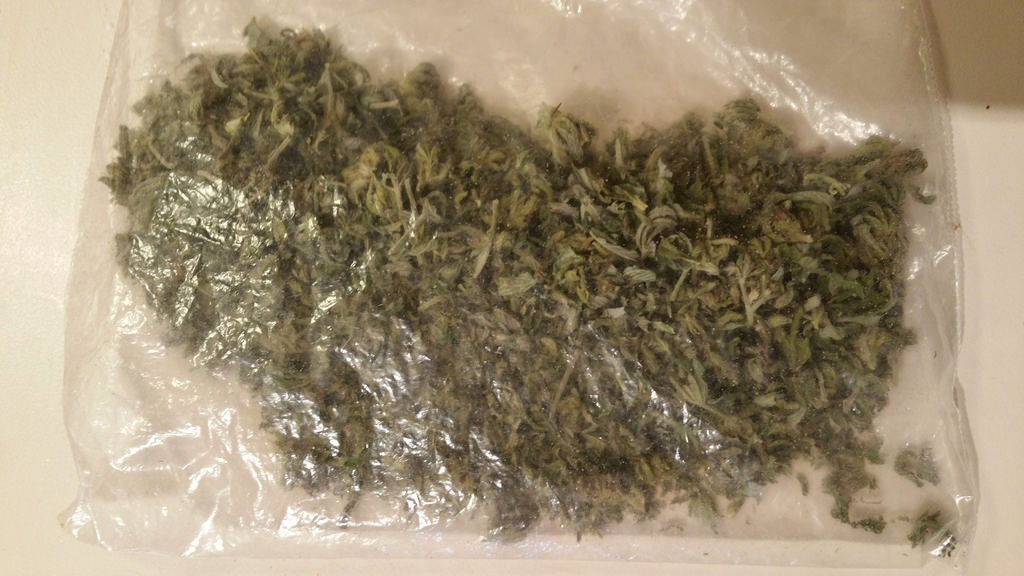| When was the last time Utah voters were asked to decide whether a particular substance or compound should be considered medicine and approved for prescription use? Perhaps a better question is, should such a thing ever be left to a democratic process? Don’t we usually allow qualified researchers to study potential drugs to know whether they work and how they should be prescribed? |
| | The deceptive part of any medical marijuana initiative is that supporters want you to believe it’s a simple matter and that you have the expertise to make such a decision. You haven’t. No one does, currently. Medicine isn’t a matter for democracy; it’s a matter for qualified researchers who know what they’re doing. Unfortunately, Washington stands in the way. Marijuana remains a Schedule 1 drug, a classification the Drug Enforcement Agency reiterated last summer. This means the federal government sees marijuana as having no accepted medical use. It also makes it hard for researchers to freely obtain and study the plant in order to perhaps disprove that notion. Against that backdrop, the Utah Patients Coalition unveiled a ballot initiative this week that organizers hope makes it into voters’ hands for the 2018 general election. They will need about 113,000 signatures, collected proportionately from 26 of the state’s 29 counties. That means you likely will be approached somewhere — in a grocery store parking lot, for instance — for a signature that indicates you have the expertise to say people should vote on the idea of approving parts of the marijuana plant as medicine. Organizers say Utah’s initiative is conservative and winnable. It definitely is the former, at least when compared to what has happened in many other states. Whether it is winnable remains to be seen. But absent real science, and a lot of it, you won’t know how to vote. That’s hard to remember as legal marijuana sweeps the land, both for medicinal purposes and for whatever, and as its harmful effects are drowned out. The website drugabuse.gov says evidence shows the percentage of young people who understand those ill effects is dropping. If it passes, this Utah version won’t legalize smoking the plant. But you would be able to vaporize cannabis for immediate relief. More specifically, it would allow doctors to prescribe a variety of marijuana-related products including topical jells, oils and edible products. Doctors could use these to treat a wide range of maladies, including autism, cancer, HIV, post traumatic stress syndrome, epilepsy, Crohn’s disease, ulcerative colitis, multiple sclerosis, Alzheimer’s and amyotrophic lateral sclerosis, the disease that had us all dumping buckets of ice water on our heads a few years back. That’s an impressive list. It is fair to ask how, specifically, various marijuana extracts may be used to treat each one, and at what prescribed doses. But what you would get in response are a lot of compelling anecdotal stories from people who found relief from suffering, and some best guesses. Go to websites that provide credible information on drug treatments and you inevitably encounter the caveat that more research is needed. You also see a list of known harmful effects from marijuana use. Those harmful effects tend to get overlooked in any such discussion. They are less important if smoking isn’t allowed. However, the Utah initiative would allow patients to grow marijuana in limited amounts outside a residential area if they can’t find a dispensary within 100 miles of their home, which smells a little like a camel’s nose in the tent. It’s important not to be cruelly indifferent to the passionate testimony of people who say marijuana has relieved pain and restored a quality of life. They are sincere. Clearly the plant does some good to some people. Normally, the FDA approves drugs. It has done so with two pills that use cannabinoid chemicals. A lot more research is needed before it approves any more. Utah lawmakers this year passed a bill that makes it easier to study the plant’s benefits within the state. That will take time. With legal access to marijuana available in so many neighboring states, it’s important Utah gets this right. Unfortunately, voters simply aren’t qualified to make that decision. |


 RSS Feed
RSS Feed

